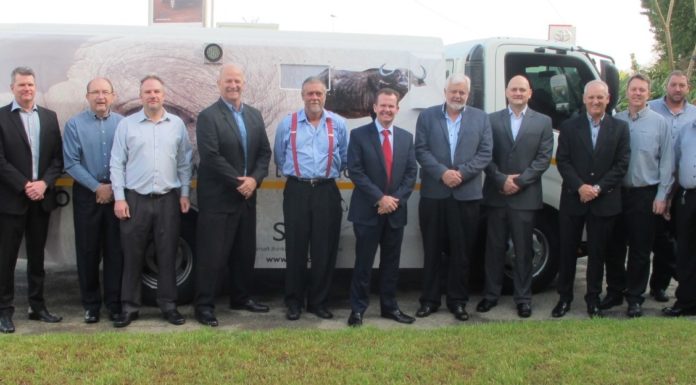Logistics in Nigeria is fraught with challenges. The lack of infrastructure is one of the biggest factors hampering supply chain efficiency in Africa’s most populous country. A seven-year-old Nigerian logistics business is defying the odds, with a recipe for success that combines consolidated loads with seamless customer service and supply chain solutions that address the infrastructure and terrain challenges in Nigeria.
Zippy Logistics CEO and founder, Kabir Shagaya, will be sharing his organisation’s success story, his insights and lessons learnt at the 2020 SAPICS Conference in Cape Town, Africa’s leading knowledge sharing and networking event for supply chain professionals.
Established in 2013, Zippy Logistics moved almost four million kilograms in tonnage across Nigeria last year and has a network that spans 14 cities in the country, with hubs in Lagos and Abuja.
Shagaya has a master’s degree in Innovation Management and Entrepreneurship. He has served as a director of the Clinton Climate Foundation and was the technical adviser to Lagos State on climate issues and carbon emissions. As director of C40 Cities Climate Leadership Group, he helped to formulate policies and manage negotiations between the public sector, private sector and international organisations. As a director of the Clinton Climate Initiative, he designed and implemented a rural illumination project to reduce greenhouse gas emissions and eradicate the use of kerosene lanterns, wood fires and other environmentally damaging methods of lighting in rural areas that aren’t connected to the national grid. Shagaya says his own lightbulb moment was discovering a logistics gap in the Nigerian market and recognising the cost and efficiency advantages of load consolidation, particularly in a region where there are infrastructure challenges.
“When a client needed to send items from Lagos to Abuja (two cities about 700 kilometres apart), I conducted research on the costing, and found that there was little difference between the price for a small 10-tonne truck and a larger 15-tonne vehicle. I had a light bulb moment then. What if I had a number of people going in the same direction; then I could maximise the space on the truck and split the price amongst them to provide a cheaper fare to the same location? Our business model was then built on consolidation.”
Shagaya outlines Zippy Logistics’ origins and aspirations: “We started out creating logistics solutions for the e-commerce sector in Nigeria. We were one of the first partners for Jumia, Konga and DealDey, among others. Currently, Zippy facilitates trade by connecting buyers and sellers. We help businesses grow and expand quickly by providing access to retail customers in existing, new and underserved markets. Our services include warehousing, distribution, procurement consulting and e-commerce management. We have a staff complement of 75, including contractual workers. Our network of operations spans across the modern trade retail sector in Nigeria. We are in partnerships with the over seven supermarket chains in the region, including Shoprite, Spar and Game.
“Over seven years in business, we have grown and evolved from an on-demand dispatch and logistics company to a full-service supply chain firm serving multinational and large FMCG corporations. We are working towards expanding our footprint across Africa. We have a keen interest in distributing made-in-Nigeria goods across the continent and playing a major role in inter-Africa trade.”
Partnerships are an important part of Zippy Logistics’ operations. “We have actively empowered entrepreneurs and are in direct partnership with small business owners,” Shagaya says. “Transporters with small or even single asset fleets have been employed by Zippy Logistics. We have also introduced SMEs and some of our current customers to larger markets and modern trade retail outlets and stockists across the country for their products.”
Shagaya does not believe that there are any textbook solutions for logistics in Nigeria. “Our approach to business is tailored to the needs of each of our customers and to our immediate environment, taking global best practices into consideration.”
“We are delighted to have Kabir on the speaker line-up for the 42nd annual SAPICS Conference,” comments SAPICS president Kea Mpane. “Supply chain and logistics has a critical role to play in Africa’s future and development, and Kabir’s experiences will resonate with every supply chain professional striving to negotiate the continent’s challenges and unlock the full potential of Africa’s burgeoning economies.”
Now in its 42nd successful year, the annual SAPICS Conference is Africa’s leading knowledge sharing and networking event for supply chain professionals. Hosted by SAPICS, The Professional Body for Supply Chain Management, it takes place in Cape Town from 21 to 24 June 2020.
For further information or to register for SAPICS 2020, call 011 023 6701 or email info@SAPICS.org.za. Up-to the-minute information is also posted on the SAPICS Conference website: https://conference.SAPICS.org











